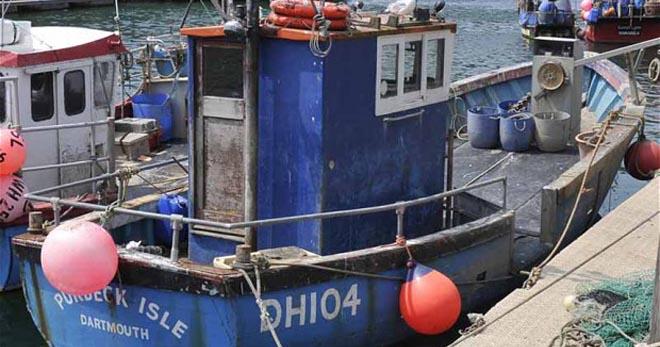Death report points to life raft stowage failure
by BBC/MCA/Sail-World Cruising on 2 Jun 2013

Purbeck Isle - three crew lost because liferaft was incorrectly stowed SW
It's useless having a good life raft on board if it's not stowed so that it will deploy in an emergency. These were the sad findings of a report into the deaths of three fishermen when their boat sank. It might have been a fishing boat not a sailing boat, but the warning is equally pertinent for sailors.
Three British boaters died because an incorrectly-stowed life raft failed when their vessel sank south of Portland Bill near Weymouth on the south coast of Britain, the report said. The Marine Accident Investigation Branch (MAIB) report said it was 'entirely possible' they could have survived if the raft had inflated.
The report also said the boat lacked distress signal devices, so the coastguard was not alerted for hours. The boat was not found until the day after it sank, south of Portland Bill at a depth of 164ft (50m).
The MAIB report has strongly advised mariners to ensure life rafts are stowed and secured properly.
The three men had set off from Weymouth on the wooden potting vessel when it foundered on 17 May last year. The boat sank so quickly they were unable to broadcast a mayday call, collect their lifejackets or manually launch the vessel's four-man life raft before they went overboard, the report said.
A release unit used to secure the life raft in its cradle activated as the vessel sank.
But the raft failed to float free and inflate because it had not been properly stowed and sank to the seabed.
The Purbeck Isle The Purbeck Isle was found on the seabed with its life-raft still on board at a depth of 50m (164ft)
'Because the life raft canister did not fit snugly into its cradle, the skipper had applied additional lashings to prevent it from falling off the wheelhouse roof in heavy seas,' the report said.
'These additional lashings had been intertwined with the life raft's main lashing rope and they prevented the raft from floating free.'
The life raft was stowed upside down which would have allowed water to build up, the report said.
Meanwhile, the coastguard was not alerted to the Purbeck Isle's plight for seven hours as it was not fitted with an emergency position-indicating radio beacon or similar distress signalling device.
The body of Mr McFarlane, from Weymouth, was found entangled in ropes attached to Purbeck Isle's two lifebuoys the day after the sinking. The wreck of the vessel was found later that day.
The search for the two missing fishermen was called off on 19 May. The body of Mr Craig, from Portland, was recovered from the seabed in Lyme Bay by a trawler on 9 August. The body of Mr Prowse, from Weymouth, has not been found.
A spokeswoman from the Maritime and Coastguard Agency (MCA) said it was implementing the recommendations from the MAIB report.
'This was a tragic accident and our deepest sympathies are with the families and friends of the three men who sadly lost their lives.
'Regulations, standards and good safety practices are vital to ensure the safety of lives at sea. Working together with the Fishing Industry Safety Group, we are all keen to nurture improvements in the safety of commercial fishing vessel operations.'
If you want to link to this article then please use this URL: www.sail-world.com/110071